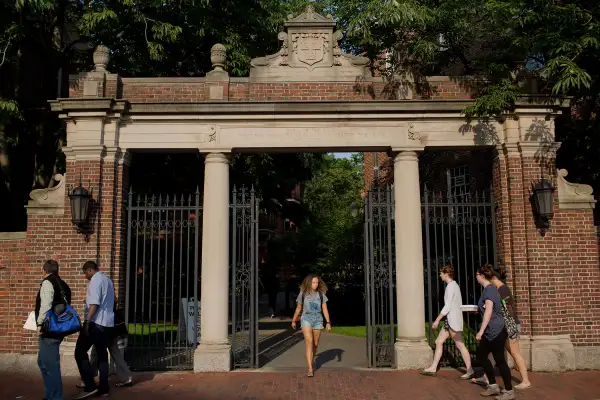Group Says Harvard Tuition Should Be Free for All Students

A new wave of candidates for the Board of Overseers at Harvard thinks undergraduate tuition to one of America's most prestigious university should be free for all students. The campaign also states that Harvard's admissions practices may be discriminatory, alleging that Asian-American applicants face unfair quotas, making it more difficult for them to be accepted.
"Free Harvard, Fair Harvard," an initiative started by conservative Silicon Valley entrepreneur Ron Unz, argues free tuition would fairly level the college admissions playing field, allowing students from diverse backgrounds to attend the Ivy based solely on merit, according to the New York Times. Unz says Harvard's endowment, which reached $37.6 billion last year, could grant free tuition to all, regardless of the student's family's wealth.
"Free Harvard, Fair Harvard" isn't being supported solely by conservatives such as Unz. Ralph Nader, the Harvard Law alumnus, progressive consumer advocate, and frequent presidential candidate, is also part of the campaign.
The group's race argument is an especially interesting proposition as the Supreme Court considers whether race-based affirmative action is constitutional. The initiative claims to specifically seek to ensure Asian Americans aren't discriminated against in the admissions process, an issue Harvard is all too familiar with.
Unz said that the group is seeking "data showing how the university’s freshman class is selected each year." Unz believes this will show whether better-qualified Asian American students are overlooked "in favor of whites, blacks, Hispanics and the children of the wealthy and powerful."
Besides race, the campaign hits at another pain point in higher education, the rising cost of college tuition. As many have pointed out, Harvard is already virtually free for financially-strapped students. The Harvard Financial Aid Initiative made it possible for students from households earning less than $65,000 to pay $0 for tuition, room, and board. Those making $65,000 to $150,000 contribute no more than 10% of the total bill. This has led some opponents to argue that the proposition would really only help the wealthiest families. But Unz says low- and middle-income students may not be aware of the aid, and thus not apply.
Unz is currently collecting signatures to run for the board.
